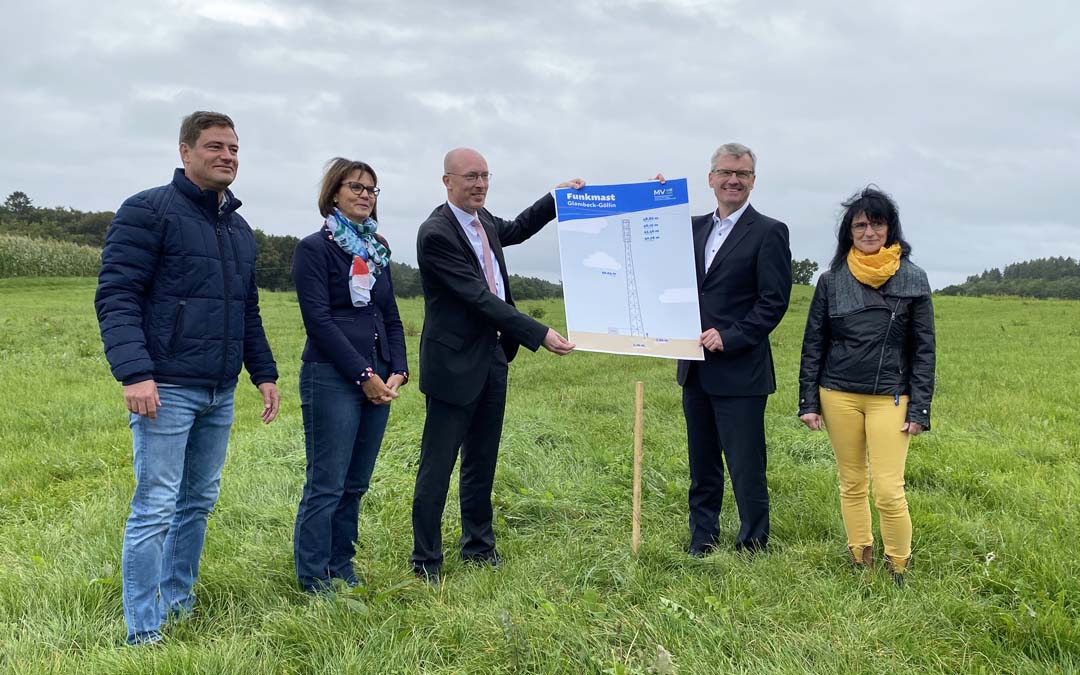Mecklenburg-Western Pomerania lacks around 300 radio masts for seamless LTE mobile coverage. But who will close these gaps in coverage if private-sector expansion is not worthwhile? To accelerate the expansion of mobile communications, the state government of Mecklenburg-Vorpommern founded the Infrastrukturgesellschaft Mecklenburg-Vorpommern (FMI) in summer 2020. The state-owned company identifies areas without sufficient mobile coverage for which no private-sector expansion is expected in the next three years and builds its own mobile infrastructure there in order to lease it to mobile communications companies.
In this way, local citizens and businesses benefit more quickly from high-performance mobile communications coverage. The regions increase the quality of life and economic attractiveness of their rural areas. And the state effectively supports the development of its regions. This is how the future is made. Now that FMI has started its work in June 2021 – following approval from the EU competition authority – the location for the first radio mast has been determined: a dead spot in Glambeck will be closed as the first FMI project.
Christian Pegel, Minister for Energy, Infrastructure and Digitization of Mecklenburg-Vorpommern, as well as representatives of FMI and Eike Gutt, Head of the Mobile Communications Department, and Nadine Gratopp from aconium GmbH met in Glambeck, the future location of the first radio mast, to get an idea of the expansion. The background: Despite considerable progress in the expansion of mobile communications, numerous areas and traffic routes in Mecklenburg-Vorpommern are inadequately covered by data networks.
The FMI is intended to close these gaps in coverage and thus also create the conditions for further expansion with 5G technology. To this end, FMI was founded in August 2020 as a wholly owned subsidiary of Landgesellschaft Mecklenburg-Vorpommern mbH. It began work in June 2021 – following approval from the EU competition authority – and initially identified suitable gaps in coverage with the help of a market exploration procedure. Mobile phone companies were asked whether they would erect mobile phone masts in the respective locations themselves within three years and without state support. FMI will not take action where private-sector expansion is planned. However, where no expansion will take place, the state will now build the necessary mobile communications infrastructure itself and lease it to mobile communications companies once it has been expanded. The state has provided FMI with 58 million euros for this purpose.
aconium assists FMI with technical issues and the organization of the expansion, market exploration and further tendering and planning for the construction of mobile communications infrastructures.

